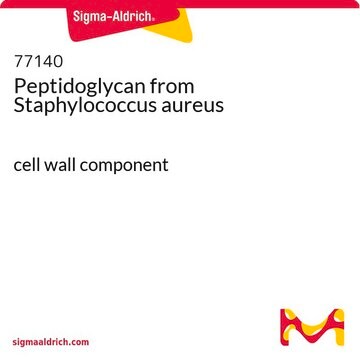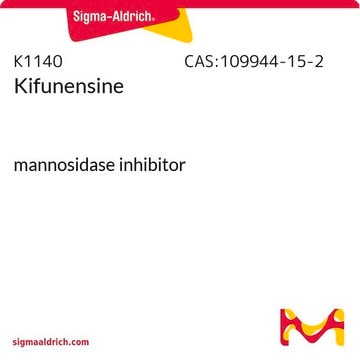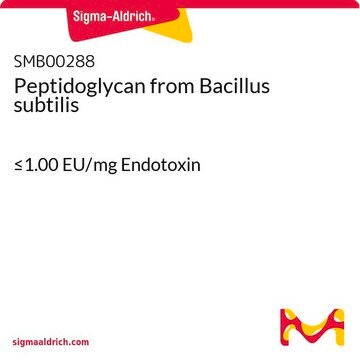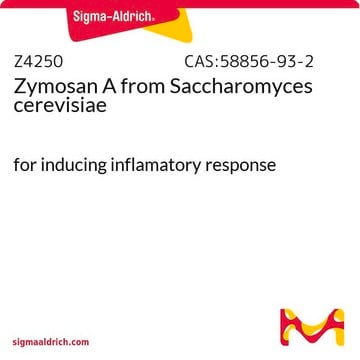Recommended Products
biological source
Streptococcus pyogenes
Quality Level
form
lyophilized powder
functional group
phospholipid
lipid type
polymerizable lipids
shipped in
ambient
storage temp.
2-8°C
Related Categories
Application
Lipoteichoic acid (LTA) is a complex component of cell walls of Gram-positive bacteria that are involved in a wide range of cell processes such as the stimulation of immune responses and cell signaling pathways. LTA differs between species of gram-positive bacteria. Lipoteichoic acid from Streptococcus pyogenes may be used to compare its structure, immunogenicity and functions versus other bacterial LTAs.
Storage Class
11 - Combustible Solids
wgk_germany
WGK 3
flash_point_f
Not applicable
flash_point_c
Not applicable
ppe
Eyeshields, Gloves, type N95 (US)
Certificates of Analysis (COA)
Search for Certificates of Analysis (COA) by entering the products Lot/Batch Number. Lot and Batch Numbers can be found on a product’s label following the words ‘Lot’ or ‘Batch’.
Already Own This Product?
Find documentation for the products that you have recently purchased in the Document Library.
Customers Also Viewed
J P Himanen et al.
Journal of general microbiology, 139(11), 2659-2665 (1993-11-01)
To evaluate the suitability of Bacillus subtilis as a production host of heterologous proteins for pharmaceutical purposes, we assessed the biological activity of this bacterium and its major cell envelope components, lipoteichoic acid (LTA) and peptidoglycan-teichoic acid complex (PG-TA) in
Ning Xie et al.
Bulletin du cancer, 99(5), E55-E63 (2012-04-24)
To investigate the therapeutic efficacy of lipoteichoic acid of Bifidobacterium (BLTA) in combination with 5-fluorouracil (5-FU) treatment on the mice bearing inoculated hepatoma-22 (H(22)) cells and the effects of BLTA on immunological regulation of organism, and explore its mechanisms. Tumor-bearing
Jun Ho Jeon et al.
Comparative immunology, microbiology and infectious diseases, 35(4), 363-374 (2012-03-27)
At allergic inflammation, cross-linking of FcɛRI with multivalent antigen-bound IgE triggers the signaling pathways via activation of protein kinase C (PKC) and mobilization of intracellular Ca(2+) leading to the production of various mediators such as interleukin-6 (IL-6). Accumulating reports demonstrated
Hun Yi Park et al.
International journal of pediatric otorhinolaryngology, 76(4), 475-479 (2012-02-07)
Change in matrix metalloproteinases (MMPs) and regulation of their tissue inhibitors of metalloproteinases (TIMPs) could play certain role in the pathogenesis of otitis media. This study was designed to evaluate the modulation of MMPs and TIMPs in middle ear epithelium
Induction of intestinal pro-inflammatory immune responses by lipoteichoic acid.
Zadeh M, Khan MW, Goh YJ, et al.
Journal of Inflammation, 9, 7-7 (2012)
Our team of scientists has experience in all areas of research including Life Science, Material Science, Chemical Synthesis, Chromatography, Analytical and many others.
Contact Technical Service






